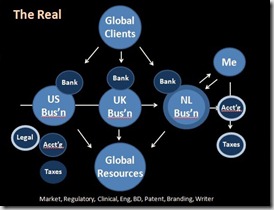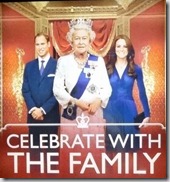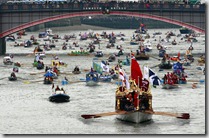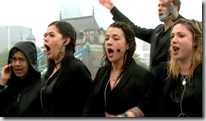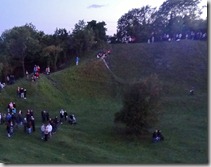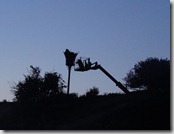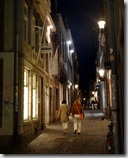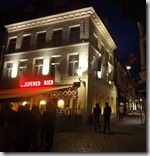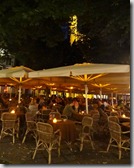The evolution of banking
My financial organization is complicated, funds flowing through a network of banks that takes a day each month to operate. So I was intrigued by a recent Economist report on International Banking that focused on retail institutions like mine. Before you snooze off, consider the ways that you relate to your bank, as a business owner or as an expat. Think about how your smartphone has changed, multiplied the ways that you manage and invest money. Do you use alternatives, like Xoom for money transfers or PayPal for bills, instead of banks? How will all this impact institutions whose business model (buy money cheaply from depositors, lend it at a higher rate to borrowers, pocket the difference) hasn’t changed in centuries?
So, touching on a few of the article’s points that resonated for me:
Branch banking: I visit my branch bank for four reasons: to access a no-fee ATM, to deposit a check, to get documentation of account status, and to put papers into my safe deposit box. Everything else, payments, money transfers, investments, reconciliation, I do online. Does a branch still matter, or will it wither away?
Interestingly, streetside branches have increased in number over the past decade, despite the growth in online banking. So, as biologists say, they must have overall survival value for the organism. They assure people that the bank is present and that their money is safe inside. Banks with lots of branches attract more customers, increase revenues faster, are more profitable. Branches provide opportunities to sell insurance, investments, and wealth management services.
But I struggle with bank branches. ING no longer accepts deposits. They don’t have printers or stamps for documents; can’t facilitate loans or international money transfers. Barclays and ABN are only slightly better, but (and the article backs this up) banks are making a conscious choice to move away from transaction-based storefronts towards becoming advisory cafés. ‘More coffee and iPads, but a cold shoulder to traditional requests.
Trust: Queuing up for a flight from Denver, I was asked if I wanted to drop my bag with the curbside skycap. No way, I replied, remembering apocryphal stories of luggage “accidently” sent to India because the tip was too small. I just don’t trust curbside. But I have come to trust other changes, like not needing a paper ticket. I know that the airlines (even RyanAir) have my reservation in their computer, waiting.
Similarly, in banking and investing I’ve grown comfortable with issuing digital instructions and expecting that they will (eventually) execute. The process is clear and consistent, transparent, predictable. I trust it like I do booking an airline ticket.
But there are limits. I avoid Barclay Connect, where mere proximity to a cashier triggers automatic payment, in favor of Chip and Pin. I only keep 20 euros on my ABN ChipKnip (mostly for paying parking). I pay cash instead of using a phone-based wallet. I use credit cards in preference to PayPal; I haven’t switched to Xoom for international transfers.
The issue is trust, not technophobia. Alternative transactions feel uncontrolled: I don’t know who’s behind them, can’t monitor what’s happening, and bear the risks if they go wrong. Retail banks will still have my business until I feel confident with the alternatives.
Global banking: One of the biggest surprises when I first became an expat was the territoriality of finance. I wanted to open an account with US and European branches so that I could deposit and withdraw money from either side. Not possible: Manual US-UK-EU interbank transfers remain a time consuming, costly necessity. I wanted to open a brokerage account in Europe to manage excess business funds. Not possible: a US citizen can only invest in bank and government bonds issued through banks.
Yet I can book flights, pay bills, and buy supplies internationally, paying with any card in any currency. If there’s a mismatch, the clearing agency (eg: the bank behind my Visa card) charges a small fee. My Cirrus ATM Card similarly delivers local cash anywhere, I haven’t carried a travellers check in decades.
But truly international banking may be arriving. It’s driven by legislation that prevents banks from becoming “too big to fail” domestically - international expansion is their remedy. Santander (Spain), Standard Bank (South Africa), DBS (Singapore), HSBC (UK) are all spreading and, finally interconnecting in ways that will facilitate cross-border banking.
The article predicts that this will come at the expense of smaller community banks. But I envision more of a two-tier system. For international business services, I want a single, sprawling institution that can slosh money and investments worldwide. But for personal banking, the cost and friction of dealing with large banks is punishing. There’s been a run in the US from large national banks to local credit unions to avoid relentless fees and penalties (I do hate Bank of America and Barclays, who both slam $20 fines on 20p “overdrafts” caused by deposit/withdrawal mismatches).
The report is relevant to the everyday experiences of expats and entrepreneurs, and flags up some alternatives and trends that might be worth considering. Just like the banks themselves, we all need to be on watch for new opportunities to improve how we buy services and what we pay for them.
Labels: Banking
